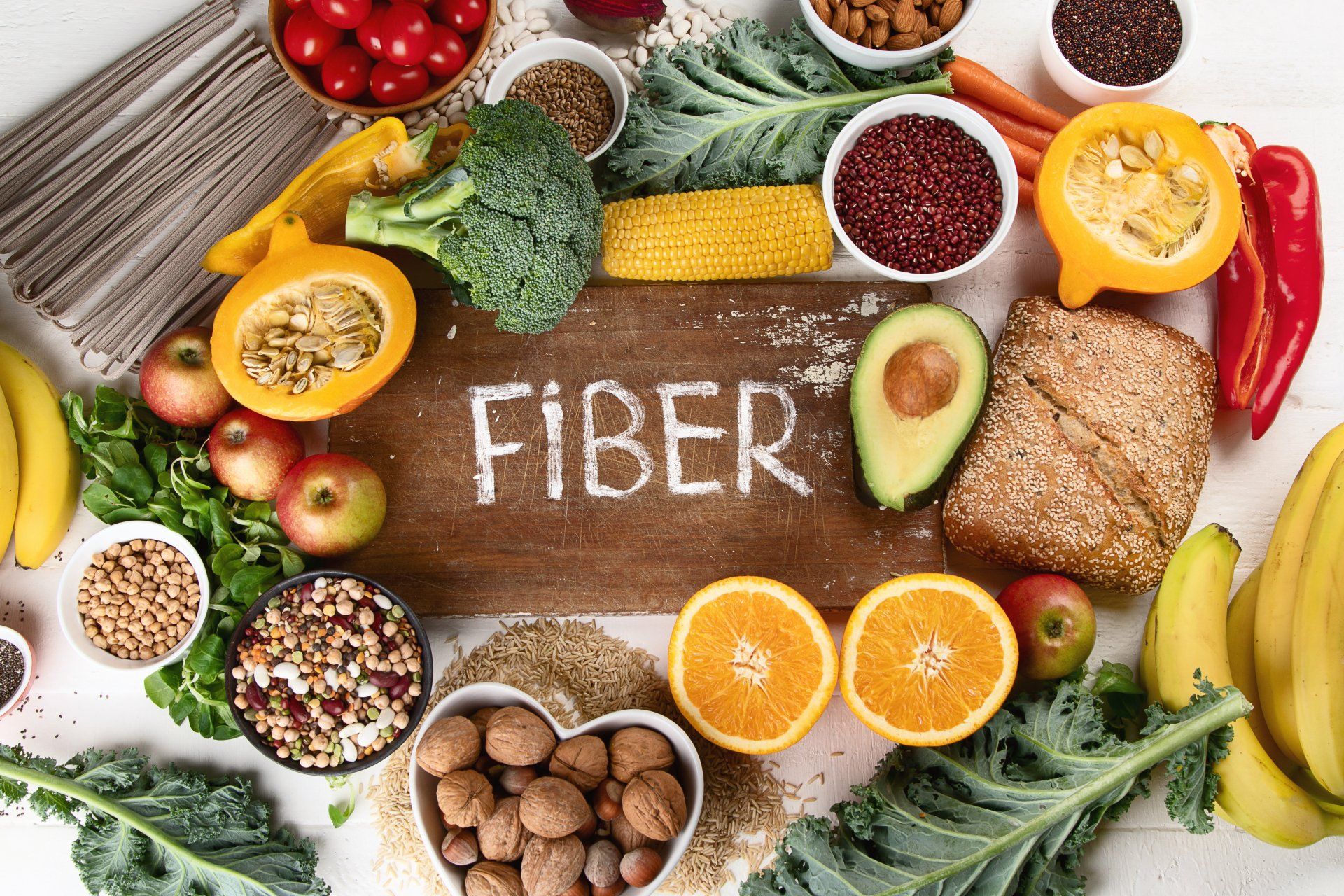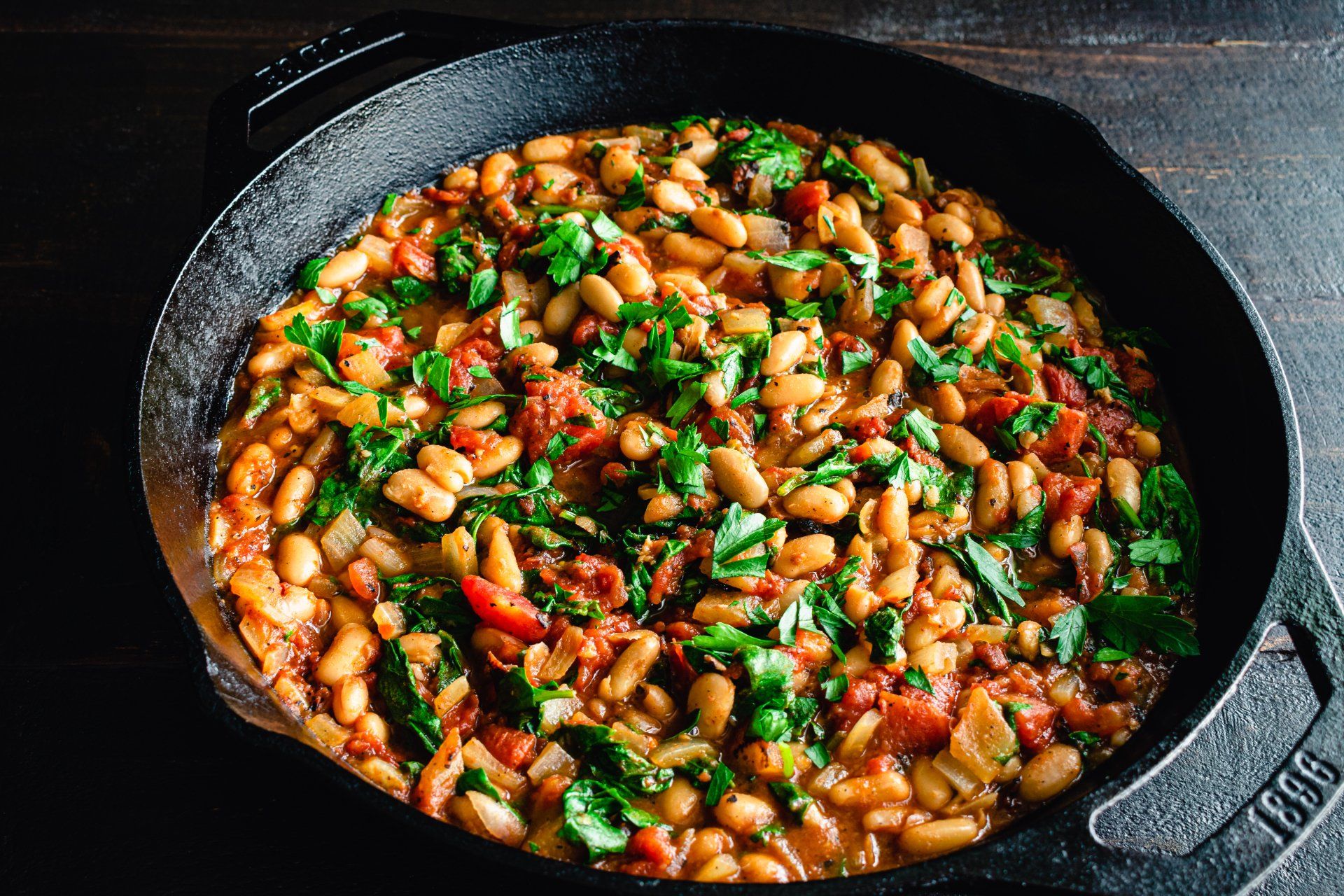Fiber: The Fourth Macronutrient

Usually when people track their macronutrients, they focus on fats, carbohydrates, and protein, but another macro that factors into a healthy diet is fiber.
Fiber plays a major role in digestive health. It fuels the intestinal cells, helps digestion keep moving to prevent diarrhea and constipation, feeds the microbiome of the gut, and also helps with excretion. Soluble fiber, the type that turns to a gel when mixed with water, can bind cholesterol, hormones, and toxins in the intestines and keeps them moving through the tract until they are excreted in the stool.
Soluble fiber dissolves in water to form a gel which slows digestion leading to more stable blood sugar. This type of fiber also binds unwanted fats and cholesterol to help move them through until excretion. Additionally, your gut bacteria use soluble fiber as a food source in the large intestine.
Insoluble fiber draws water into your digestive tract and adds bulk to stool, allowing it to pass more easily through the intestine, helping to prevent constipation.
The national fiber recommendation for men is 30g and for women is 25g. Most people think salad is enough fiber, but did you know 1 cup of shredded lettuce only has 1/2 gram of fiber? On the other hand, 1 cup of broccoli has 5g of fiber, and 1 cup of beans has an amazing 30g of fiber! If you are aiming for 30g per day and eat three meals per day, a good rule of thumb would be 10g per meal.
Whole foods are full of naturally occurring fiber, which is basically just structures that are resistant to our digestive enzymes. The term ‘whole foods’ applies to fruits, vegetables, legumes, whole grains with minimal processing, and animal products with minimal processing. Whole grains, beans, fruits, and vegetables are all close to the state they were harvested in, which means they still contain all of the vitamins, minerals, fiber, and essential nutrients our bodies can utilize.
Prebiotics are compounds that, when fermented in the gut, produce specific changes in bacterial composition or activity, and support the growth of our normal commensal bacteria. These compounds are mostly carbohydrates that we cannot digest due to a lack of the proper enzymes, aka fiber! In general, fruits, vegetables, beans, and whole grains like wheat, oats, and barley are all good sources of prebiotic fibers.
One of my favorite recipes that helps fulfill the daily recommended fiber goal is the following skillet. This dish is a savory blend of white beans, garlic, sun dried tomatoes, and kale, sautéed in avocado oil. One serving has 16.5g of fiber, 21g of protein, and tastes delicious!
Adrienne Wilen is a Naturopathic Physician practicing at Federal Way Naturopathy and the creator of Biomi, a 10-week program helping people resolve common digestive complaints.
Learn more at MyBiomi.com.

Sun Dried Tomato, Kale and White Bean Skillet
(serves 4)
Ingredients:
- 2 - 15 oz cans of white beans drained and rinsed
- 3 oz sun dried tomatoes in oil
- 1 Tbl apple cider vinegar
- 1 Tbl avocado oil
- 2 cloves garlic, minced
- 6 oz fresh, chopped kale
- ½ tsp dried basil
- ¼ tsp salt
- 1 pinch crushed red pepper flakes
- Pepper to taste
Directions:
Roughly chop the sun dried tomatoes. In a small bowl, combine apple cider vinegar, 2 tablespoons of oil from the sun dried tomatoes, and spices. Saute the garlic in avocado oil over medium heat for 1 minute. Add kale and 2 tablespoons of water to the garlic and cook until wilted. Add the drained beans and chopped sun dried tomatoes, cook until beans are heated through. Drizzle the dressing over the skillet and stir to combine. Serve warm.










